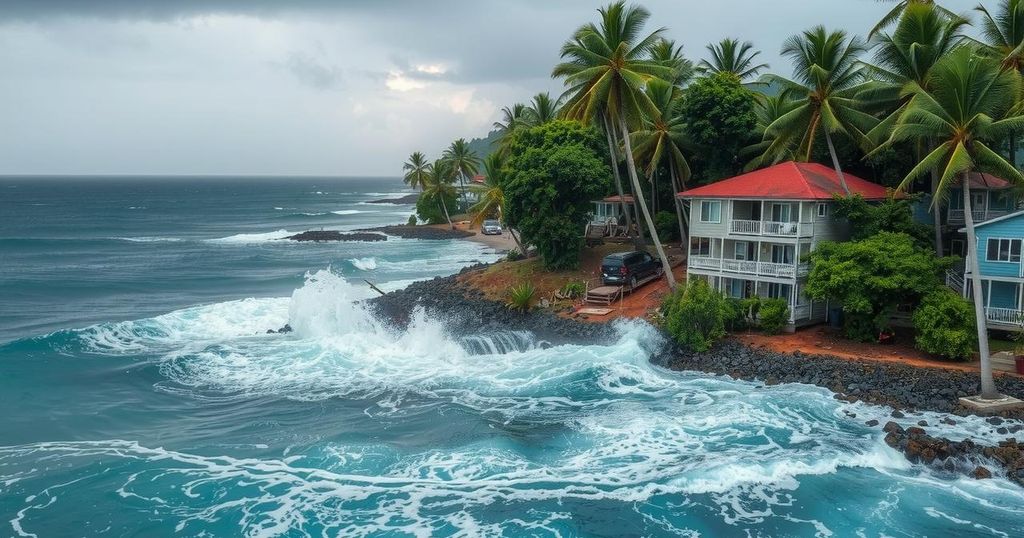Tropical Cyclone Chido, which struck Mayotte on December 14, 2024, is the strongest storm in 90 years, causing at least 21 deaths and injuring over 830 individuals. Approximately one-third of the island’s 320,000 residents are homeless. The cyclone’s winds reached up to 230 km/h, resulting in significant infrastructure damage, particularly to healthcare facilities. The local government has relocated over 100,000 people to emergency centers.
Tropical Cyclone Chido, the most powerful storm to hit Mayotte in nearly a century, struck on December 14, 2024. With winds ranging from 180 to 230 km/h (112 to 143 mph), the cyclone wrought significant destruction across the island, resulting in at least 21 confirmed fatalities and over 830 injuries. Tragically, it has left approximately one-third of Mayotte’s 320,000 residents homeless, prompting fears that the death toll may rise into the hundreds, or even thousands, as the full extent of the damage becomes apparent. The local government has established over 70 emergency centers to accommodate more than 100,000 displaced individuals, while thousands are facing power outages as efforts to recover continue.
The cyclone’s impact has been catastrophic, with several reports indicating extensive damage to infrastructure, including health services. The local hospital has suffered major water damage, rendering many medical facilities non-operational. Minister of Health Geneviève Darrieussecq emphasized that the disaster’s true toll and repercussions are likely underestimated at this stage. In response to the crisis, the French government dispatched officials to assist in recovery efforts, acknowledging the dire need for medical and logistical support across the island as rescue missions begin to evaluate the damage and aid survivors.
As Mayotte grapples with the aftermath of Cyclone Chido, scenes of widespread destruction have emerged, leading community leaders to describe the situation as “apocalyptic.” The national government has committed resources to the recovery efforts, including military personnel and medical supplies to address immediate health challenges confronting the population. The situation remains fluid, and officials continue to assess the humanitarian needs of the affected communities amid ongoing rescue operations, calling for sustained support in the recovery process.
Tropical Cyclone Chido has marked a significant event in the recent history of Mayotte, an island territory of France located in the Indian Ocean. The cyclone, categorized as a category 4-equivalent storm, is noted for being the strongest cyclone to impact the island in 90 years. This unprecedented weather event has raised concerns about climate change impacts and infrastructure vulnerabilities in island regions. With a population of around 320,000, Mayotte faces significant challenges in the wake of such disasters, particularly regarding emergency response and recovery efforts. The current situation reflects broader issues faced by small island territories in preparing for and recovering from extreme weather events, highlighting the need for effective disaster preparedness and resilience strategies.
In conclusion, Tropical Cyclone Chido has caused unprecedented damage to Mayotte, leading to significant loss of life and widespread devastation. With many residents displaced and essential services disrupted, the local and national governments face an urgent need to address humanitarian needs and undertake extensive recovery efforts. The true scale of the disaster is still being assessed, but early reports indicate that the cyclone has left a lasting impact on the community, calling attention to the vulnerabilities of island territories in the face of extreme weather.
Original Source: watchers.news






